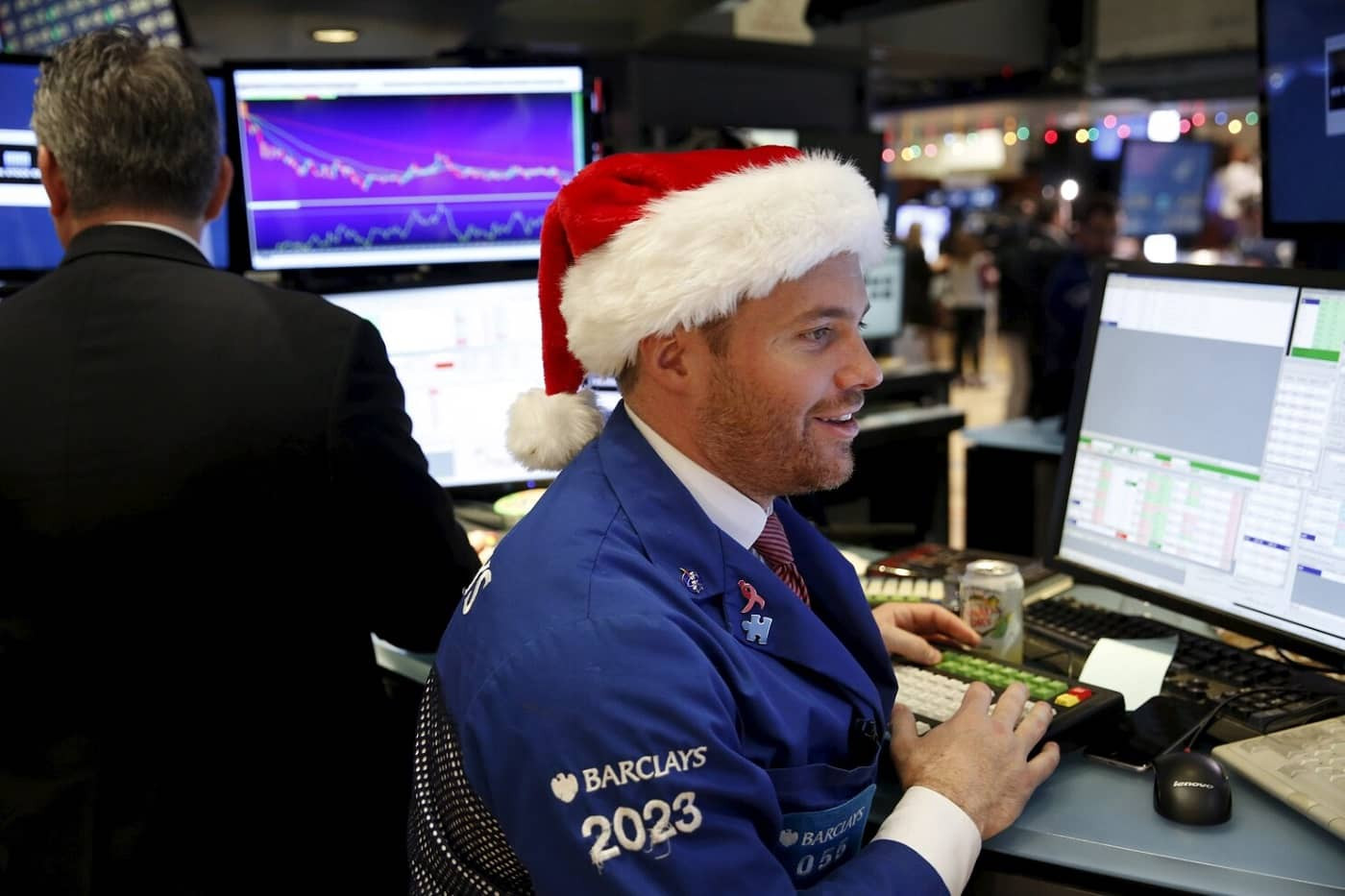On the last trading day of 2022, the leading stock indices of Western Europe were balancing in the red zone after a strong growth the day before. Those that were sharply trading lower were stocks in the consumer, utilities and health care sectors.

In addition, the volume of trading on European stock exchanges on Friday was lower compared to the previous days of the week in the run-up to the New Year. The stock markets of England and Germany had a shortened session, and on Monday trading floors will be closed due to the New Year celebration.
At the time of writing, the pan-European Stoxx 600 fell by 0.5% - to 428.21 points.
Earlier, Bloomberg, the leading American provider of financial information, reported that the STOXX Europe 600 indicator ended the current year with a drop of more than 12%. This will be the sharpest decline for European equities since 2018, and its main reasons are the negative consequences of the situation in Ukraine, the global energy crisis, as well as the permanent acceleration of inflation and decisive actions of the world central banks to combat it.
French CAC 40 fell by 0.71%, German DAX dropped by 0.68% and British FTSE 100 - by 0.21%. At the same time, since the beginning of the current year, CAC 40 fell by 8.7%, DAX - by 11.9% and FTSE 100 increased by 1.4%.
Leaders of the fall
The share price of the German energy company Uniper SE plummeted by 4.3%.
German biopharmaceutical company MorphoSys AG fell by 3.8%.
The share price of the Swiss chain of pharmacies Zur Rose Group AG fell by 2.9%.
British oil giant Pantheon Resources PLC collapsed by 43.4% after the company's pretax loss for fiscal 2022 almost doubled.
Market Sentiment
On Friday, European investors continued to analyze news about easing of coronavirus restrictions in China. The Chinese government has announced that the country will drop its Covid-19 quarantine requirement for passengers arriving from abroad starting January 8. At the same time, a negative test for coronavirus will be required to enter the state.
In addition, Beijing authorities reduced the level of surveillance of the coronavirus, rejecting the legal basis for the introduction of enhanced infection control measures.
In response to this move by Chinese authorities, some states have tightened requirements for visitors from the PRC. The United States, for example, is introducing mandatory testing for people arriving by air from China as of Jan. 5.
Traders around the world have recently been seriously concerned about China's "zero-Covid" policy, as new and existing restrictive measures in China have had a negative impact on the country's economic activity.
At the end of November, mass protests erupted in Shanghai against China's stringent Covid restrictions. The police dispersed protesters with gas canisters.
After that, markets began to hope that mass protests in Chinese cities would force local authorities to loosen regional restrictions. Fresh news from China sent a welcome positive signal that the world's second-largest economy could return to robust growth.
On Friday, European investors were also analyzing data for the countries of the region. Thus, according to new data from the Nationwide Building Society, UK property prices rose 2.8% year-on-year in December against November's 4.4%.
Meanwhile, Spain's statistical office INE reported the country's annual inflation rate fell to 5.8% in December of 2022, the lowest since November 2021. Thus, in the outgoing month consumer prices rose by 5.6% against the November increase of 6.7%. At the same time, analysts had forecasted inflation at 6.5%.
Trading results the day before
On Thursday, the leading stock indices of Western Europe closed in the green zone. However, at the beginning of the trading session, the market was steadily pessimistic, caused by investors' concerns about the permanent acceleration of inflation and tight monetary policy of the world central banks.
As a result, the pan-European Stoxx 600 rose by 0.68% - to 430.35 points.
The French CAC 40 gained 0.97%, the German DAX gained 1.05% and the British FTSE 100 gained 0.21%.
Those that were sharply trading lower were stocks in oil and gas and consumer companies.
The share price of European oil corporations British Petroleum and Shell dropped by 0.7% and 0.3%, respectively. Companies were under pressure due to the sharp fall in world prices for crude oil (by more than 1%).
The share price of key consumer companies - British Unilever and British American Tobacco - fell by 0.6%.
Swiss drugstore chain Zur Rose Group AG grew by 5.2%.
The share price of British online retailer THG Plc increased by 3.2%.
European airlines easyJet PLC, Wizz Air Holdings Plc and Deutsche Lufthansa AG fell by more than 2%.
German online retailer of shoes, fashion and beauty Zalando SE dropped 1%.
The share price of the German truck manufacturer Daimler Truck Holding AG decreased by 0.8%.
Adidas AG, a German manufacturer of clothing, footwear and accessories, decreased by 0.6%.
The share price of Evraz Plc, a British metals and mining company, plummeted by 12.6%.
British company Ocado Group Plc, which licenses grocery technology, sank by 1.5%.
TThe share price of German energy company Uniper SE soared by 10.9%.
German air carrier Deutsche Lufthansa AG dropped by 3.3%.
An important factor supporting the stock market in Europe on Thursday was a strong performance of the U.S. stock exchanges. On Thursday, the Dow Jones Industrial Average jumped 1.5%, the S&P 500 soared 1.75% and the NASDAQ Composite gained 2.59%.





















